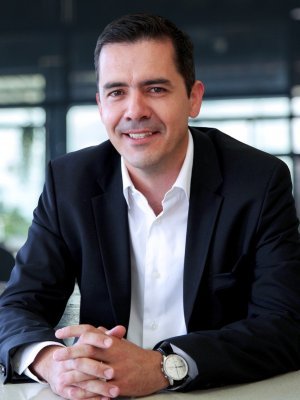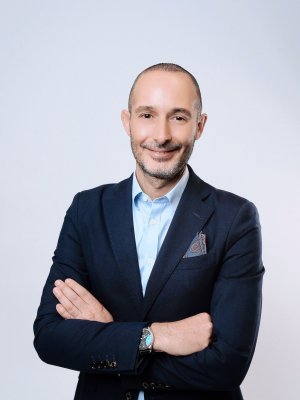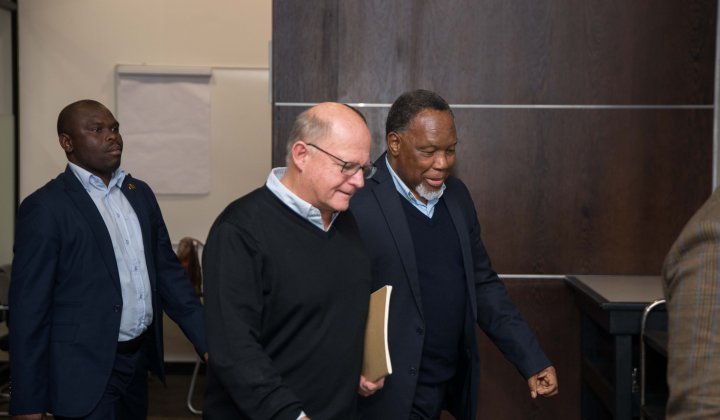This is not the first time the management consulting industry has found it necessary to adapt in step with changing needs. The profession began with “people asking for people”, reflects Luis Rodriguez, the managing director for strategy and consulting at Accenture in Africa. Then it moved to a focus on deliverables and outcomes. “Now clients want value,” he says.
The need for this shift was already evident before the 2020 pandemic, with CB Insights noting that traditional consulting firms had only grown by 2% over the past five years. This was partly driven by the digital shakeup, which saw tech companies moving in to grab some of the consulting industry’s lunch. However, more recent disruptions are forcing the $250-billion sector to look more carefully at its relevance, use of technology and agility.
“Covid highlighted the fragility of most companies and business models,” says Valter Adão, chief executive at digital and innovation advisory Cadena Growth Partners. “That realisation has led to companies becoming more deliberate around modernising their businesses to compete in the digital post-Covid economy and to move beyond their core business, or a single product offering, into adjacencies that allow them to leverage their capabilities, assets, intellectual property (IP) and access to market in a different way to create new value.”
Internally, the Covid-19 years have also called on organisations to redesign their structures and develop new ways of working, says Dudu Msomi, chief executive of research-orientated strategic advisory and consultancy Busara Leadership Partners. This, she says, has caused employee dissatisfaction and placed heavy pressure on middle managers tasked with finding ways to facilitate changes while keeping organisational culture relevant. This has required consultants to step in and equip middle management “for the change management role that is required to shepherd organisations through these uncertain times”, as well as imparting “more conceptual and interpersonal management skills”.
These are not the only trends worth noting. Scratch the surface and other far-reaching shifts pop up, many of which point to the changing client-consultancy relationship.
Intelligent digitalisation for modernisation
Adão says that “probably four in every five digital transformation initiatives don’t achieve the promised return on investment, because they started with the technology or treated the digitalisation process as separate from the organisation’s strategic intent.”
He stresses that the goal of modernising or digitising a business shouldn’t differ from the business’ corporate strategy, it should augment and accelerate it. Yet, technology uptake and digitalisation is often an uneasy fit for companies if they approach agile new tools with an old-fashioned "ownership" outlook. Adão sees a role for consultants as conduits connecting clients to the correct, deep and authentic skills. This requires a shift from strong technical capabilities to an ecosystem understanding of the challenges and practicalities around activating a strategy, transforming an organisation or commercialising a new product.
Developing an ecosystem mindset
An ecosystem evolution might look something like this: organisations may partner with consultancies or specialists to access skills. They may partner with other organisations to access markets or broaden their product offerings. Irrespective of which route emerges, Adão says the value must be clear and "well engineered".
The positive for clients, if the right personalities and skills come together, is heightened value. For the consulting industry – particularly the big players – it would mean moving away from the model of holding all these diverse skills inside the business.
According to Msomi, “Over the next three to five years, there will be greater 'co-opetition' between academics, researchers, technology companies and consultants as innovative solutions are sought for client challenges. Trans-disciplinary teams will become the norm, not just from one company, but populated from diverse organisations to create the most effective products and services to meet client needs. The focus will be on skills sets rather than qualifications for their own sake.”
This shift, together with heightened leadership challenges, will continue to give bespoke solutions the edge over “the commoditised services that the big consulting firms, particularly, have been known for”, believes Msomi.
Adão agrees this is a development with which some big firms are struggling and that their risk processes may require that, even in a partnership, “they need to be the primary player”. This, he says, isn’t necessarily a bad thing for mid-tier players who can benefit from the ecosystem evolution while letting the big primary partner “catch all the headwinds and all the administration” – that is, if the co-opetition partnerships are transparent and carefully formulated.
A focus on partnerships
Rodriguez notes that Accenture is increasingly “being asked to potentially orchestrate additional partners. One thing that is becoming evident is that the asks are becoming more complex and, in some cases, it requires a management consulting firm to bring along other partners to really get what a client wants to be done. This makes management consulting a very different business to what it was a few years ago.”
These are not trends one expects to see playing out in three to four years, says Rodriguez, “it’s significant now and will probably be more significant in the coming years”.
In some cases, these partnerships might also extend to valuable cross-industry connections, be they in South Africa or throughout greater Africa and the world. This is particularly true when consultancies are tasked with guiding clients to scale geographically, says Rodriguez, and might have to play the role of “orchestrating and connecting them with potential clients”.
The notion of partnerships extends beyond the consultancy ecosystem, and is increasingly becoming relevant in the client-consultant relationship. While Covid-19 had a mixed impact on the global consulting sector, Adão believes his company’s focus on growth and modernisation, together with a willingness and ability to co-invest or participate in value creation with clients (under the correct and appropriate conditions), is “the strongest expression of our confidence in our capabilities”. He says this changes the dynamic of client relationships and has made them a more attractive option.
Rodriguez adds that these evolving client partnerships could take any number of commercial forms, from co-investing or sharing risk and upside.
Agility and opportunities
The ecosystem-partnership evolution is causing clients to think differently about consulting, says Adão. This could, in time, translate into mid-tier firms rising to the surface and “bringing a bit more variety to the South African market”. Adão would like to see South African executives and companies becoming more curious, giving smaller entities with highly experienced people and solid track records an opportunity to create value in their environment. He admits it will be hard to challenge the big firms and their range of offerings, so smaller consultancies must find uniqueness in their proposition in order to succeed.
“Reflect on the digital market just five years ago,” he says. “Many of the big players entered the digital space by acquiring the small ones.” This highlights how the big players need to be broad in their offerings while the successful smaller firms must be uniquely differentiated and, ideally, ahead of the game in terms of trends and changes.
That said, for clients there is convenience in having everything in the same environment. South Africa is a corporatised environment with a distinct preference for big brand names, but as companies continue to face new and unprecedented challenges, Adão believes they will start to explore different perspectives.
Breaking traditional definitions
In another shake-up to the existing way of working, Rodriguez notes that consultancies are being asked “to go beyond traditional industries in search of opportunities and assets – sometimes those at the intersection of industries”.
“Look at Tesla," he says. "What is it? A car manufacturer, a software or data business? What are telcos? What is MTN or Vodacom? The same goes for banks, which are going into platforms and retail spaces. Hotels are going into spaces like financial services. There is a clear breaking down of traditional industries.”
This merging and intertwining of industries has significance for the next trend: innovation.
Innovation for growth
Guidance on how to approach innovation is a key area of focus in South African business currently, and one where many clients still need help. “You can’t approach innovation in the same way that you do your core business,” says Rodriguez, “but if you make it very distinct or completely outside your core without connecting it at some point that also creates issues. It’s a tricky thing to solve and it is hard, but it’s a common ask and it’s not easy – you can’t just use a copy-and-paste template.”
Adão says the way companies move the needle on growth lies beyond core innovation. They must explore adjacencies to their core business or leverage innovative thinking to broaden their offerings. “That’s where you take a company’s assets – access to market intelligence, IP, balance sheets, geography – and create a new service or offering, or to enter a new sector in a differentiated way," he explains.
Adão, who was previously the founding and managing partner of Monitor Deloitte in Africa and managing partner for Deloitte Digital, was attracted to the field of innovation-for-growth, which he saw as instrumental in helping large listed entities “leverage their hard and soft assets and establish new capabilities to generate new value, and revenues”. This is the type of thinking all organisations should be embracing to increase their relevance and resilience, he believes.
Coming up with ideas is “the easy part” of this process, says Adão, who believes that building and monetising million-dollar ideas is where consultancies will increasingly play a key role, particularly if they offer execution and closer partnerships.
Quick, clear impact
The final, pervasive trend relates to what Accenture calls "compressed transformation". Rodriguez explains that this client need boils down to “whatever needs to be done, it needs to be done a lot faster”.
The need for speed is critical. “It’s not enough to get value … it needs to be delivered in a shorter time,” says Rodriguez. This has implications for delivering fast turnaround as well as tangible value.
Every industry is going through some form of disruption currently, which means consultancies are facing a constant ask “to help grow the core of a business but also to help the business to manage innovation”, explains Rodriguez. “So, there is a constant ask and a struggle between creating the new and growing what already exists. And that’s a constant across every industry.”
In order to meet the demand for rapid rollouts, “we as consultants need to bring stuff that exists, is doable and realistic”, believes Rodriguez. Get this right, and clients will see the appeal of partnering with a consultancy that can quickly tap into design skills and knowledge to make the journey “just a little less risky … and, of course, faster”.
The Future of Management Consulting
In addition to staying on top of trends impacting both the consulting sector itself and the changing needs of their clients, commentators such as Harvard Business Review and The Economist believe the industry will be disintermediated by artificial intelligence (AI).
Barry Libert and Megan Beck wrote in 2017, “We agree that consultants provide insightful advice and guidance. However, a great deal of what is paid for with consulting services is data analysis and presentation. Consultants gather, clean, process and interpret data from disparate parts of organisations. They are very good at this, but AI is even better.”
The Economist, meanwhile, predicted in 2018 that the impact of AI would pit tech giants against existing consultancies.
Both of these predications were published prior to the 2020 Covid-19 outbreak, which escalated global uncertainty and disruption and caused fresh shifts in thinking around the future of consulting. Far from being pushed out of the inner sanctum, the consulting industry now seems to be moving towards even deeper partnerships underpinned by risk mitigation, diversity and innovation. Far from eschewing consulting, companies are asking more of the advisers, consultants and academics they’ve turned to in the past, not for solutions of the “simple, off-the-shelf” variety, but altogether more holistic and creative interventions.
For Cadena Growth Partner’s Valter Adão the boldness to embrace new disciplines and the economics of new forces shaping the world of business, such distributed ledger technology (the blockchain), will increasingly become a differentiator for companies looking for a consulting partner. A willingness to co-invest and participate in value-creation with organisations adds another interesting layer.
A glimpse into the future
When Adão left Deloitte Africa for innovation advisory and venturing firm Cadena in 2021 he did so fully expecting that Cadena represented the direction in which “advisory is going”.
“I’ve felt for many years, there's a strong correlation between confidence of knowledge, and how well a programme runs,” Adão says. “In fact, MIT put out a study which shows a very strong correlation between the performance of an organisation and the levels of fluency inside the organisation.”
Busara Leadership Partners’ Dudu Msomi adds that “one of the biggest challenges for South Africa, and globally, is that the demand for certain skills, qualifications and experience exceeds supply. There is a dearth of leadership, strategy, communication and governance skills.” Her consultancy works with leaders – specifically board members, executives and entrepreneurs – to master these “necessary scarce skills”.
Diversity of talent
Finally, diversity will continue to be a differentiator. When Accenture’s Luis Rodriguez started his career in consulting two decades ago it was a more homogeneous industry than we see today. “We were all the same, mostly males, with similar educational backgrounds,” he recalls. “That doesn’t work now. You need diverse skills, diverse backgrounds in terms of education, gender, ethnicity. It’s about diversity first.”
Another key change is the way consultancies operate. Previously working 18 hours straight might have been one way to crack a problem, but the complexity of issues today sometimes means teams need more than one sprint. They might need to rest and sprint again. “If all you do is put in long hours that’s not all that is needed … Sometimes the answer is not that easy,” says Rodriguez. “It requires being in the right frame of mind to come up with an answer rather than [producing] something mechanical. That requires diversity and different ways of working, which is different from the past when, if you followed a process, you’d get the answer.”
Accountability meets agility
Valter Adão from Cadena Growth Partners believes consultancies will continue to help companies achieve their quest for growth and relevance. However, as uncertainty fuels new challenges, these offerings and propositions, as well as the calibre of consultants, must stand up to close scrutiny.
“Unfortunately, there is a low barrier to entry into consulting,” explains Adão. “Anyone, irrespective of whether you have a consulting history, can say they ‘do strategy’. So, it takes a bit of time for people and smaller companies that aren’t good enough to get washed out of the system.”
While he does not advocate for onerous regulations as a response, Adão says “it’s probably not a bad thing to bring some kind of accountability into the environment”. In recent years several leading global consultancies have been under fire for their role in South Africa’s state capture scandal.














